Maundy Thursday commemorates Jesus’ Last Supper with his followers as well as the particular meaning he gave to his meals with them during the last phase of his life. He had intervened in the Temple to expel vendors and their animals. They were necessary to provide for sacrifice, but he opposed their presence in the Temple. When he used force to drive animal vendors, money changers, and livestock out of the Temple, he provoked the authorities in Jerusalem. Many from the high priestly class, backed by the Roman military government, jealously guarded good order in the Temple. For them, the smooth operation of sacrifice there assured Rome’s continued rule and the power of the high priests. Jesus entered the great court of the Temple in order to change sacrificial arrangements. His expulsion of the animal vendors and the money changers who went with them, however, was momentary. He withdrew from the Temple, and the authorities sought an occasion to seize him.
Jesus’ inability to change the sacrificial system permanently may have been the reason he said that his own meals were the blood and flesh that God accepted. In effect, common meals—long a characteristic in Jesus’ circle—became a replacement for conventional sacrifice. Paul’s first letter to the Corinthians (11:23-26) is the earliest known reference to communion as a signifier of the New Covenant. Jesus symbolizes the meaning of the Eucharist by washing his followers’ feet in John 13:21-32. For the Gospel according to John the triumph of Jesus giving his life for his friends in the Crucifixion (John 15:13) is conveyed in the fellowship of his meals, where Jesus’ purifying presence makes his disciples ready to hear the command to love one another. The nearness of the events to the Passover inspires the choice of the first reading. Passover is also a fitting occasion for the celebration described in Psalm 116, read in part here in association with both Jesus’ impending death and his victory over death.
The First Reading
Exodus 12:1-4 [5-10] 11-14
The Preparation of the Passover Offering
This reading of Exodus 12 details the rules for the slaughter and preparation of a lamb prior to the Israelites’ Exodus from Egypt. Households are then to perform this same ritual annually, as a remembrance of God’s saving actions. The Paschal lamb provided the blood that marked the Israelites’ doorposts, so that Israelite households would be passed-over as God slayed the first-born of Egypt.
—
The Lord said to Moses and Aaron in the land of Egypt, “This month shall be for you the first of the months; it is to you the first of the months of the year. Speak to the entire community of Israel and tell them that on the tenth day of this month, they shall take for themselves a lamb for each family, a lamb for each household. But if a household is too small for a lamb of its own, then they and their close neighbor shall take one, dividing it proportionally to the number of people; according to how much they eat they shall contribute for the lamb. Your lamb shall be unblemished, a male yearling; from the sheep or from the goats you may take it. And you shall keep it under watch until the fourteenth day of this month. Then the entire assembly of the community of Israel shall slaughter it at twilight. And they shall take some of the blood and place it on the two doorposts and on the lintel of the houses in which they will eat it. And they shall eat the meat that night, roasted with fire and unleavened bread; with bitter herbs they shall eat it. Do not eat any of it raw or boiled in water, only roasted with fire, its head with its legs and its organs. Do not let any of it remain until the morning; that which remains of it until the morning you shall burn with fire. Thus you shall eat it: your loins girded, your sandals on your feet, and your walking staff in your hand. You shall eat it in haste. It is the Lord’s Passover! For I shall pass through the land of Egypt on that night, and I shall strike every male firstborn in the land of Egypt, both humans and animals. And on all of the gods of Egypt I shall execute justice. I am the Lord. But the blood will be a sign for you on the houses you are in. I shall see the blood and pass over you, so that among you there will not be a destructive plague when I strike in the land of Egypt. This day shall be for you a memorial, and you shall celebrate it as a festival to the Lord throughout your generations; a perpetual statute, you shall celebrate it.”
The Psalm
Psalm 116:1-2, 12-19
Thanksgiving for the Good Done by God
The theme of these verses from Psalm 116—deliverance from distress—is appropriate in the context of remembering Passover and the events of the Exodus. The idea that God laments the death of the righteous takes on particular significance when viewed in conjunction with Jesus’ impending crucifixion and subsequent victory over death.
—
- I love God
because the Lord hears my voice, my supplications. - Since he tilted his ear to me, all my days I will call on God.
- How can I repay the Lord for all the good God has done me?
- I raise the cup of deliverance and call upon the name of the Lord!
- My vows to the Lord I shall fulfill, in the presence of all God’s people!
- Grievous in the sight of the Lord is the death of God’s faithful ones.
- Please, Lord, for I am your servant!
I am your servant, the child of your maidservant!
You have opened the bonds of my distress. - I shall sacrifice to you a thanksgiving offering,
and on the name of the Lord I shall call! - My vows to the lord, I shall pay,
in the presence of all God’s people. - In the courts of the house of the Lord,
in your midst, Jerusalem.
Hallelujah!
The Second Reading
1 Corinthians 11:23-26
The Supper of the Lord
Paul’s account of the Lord’s Supper, as he calls the Eucharist, is the earliest written reference (from 55-56 CE) to this central sacrament of Christianity. He bases what he says on an earlier, oral tradition; in the passage he insists that he accurately transmitted what he learned to the Corinthians. According to this account, the purpose of the meal is to bring Jesus to “remembrance” before God. The action amounts to a “new covenant,” borrowing the terms of Jeremiah 31:31, and anticipates Jesus’ coming in glory in order to accomplish God’s justice.
—
For I obtained from the Lord what I also passed on to you, that the Lord Jesus, in the night in which he was delivered over, took bread, gave thanks and broke and said, “This is my body for you: do this for my remembrance.” Likewise he also took the cup after eating, saying, “This cup is the new covenant in my blood; do this as often as you drink for my remembrance.” Because as often as you eat this bread and drink the cup, you declare the Lord’s death—until he comes!
The Gospel
John 13:1-17, 31b-35
Jesus Washes the Disciples’ Feet
In John’s Gospel the Crucifixion is not Jesus’ defeat, but his glorification. When he is lifted up on the cross, he says, “I will draw all people to myself” (John 12:32). The sign that one has been drawn to Jesus’ love is that one shows love: “just as I loved you, so you also love one another” (John 13:34). The close of today’s Gospel brings home this message in so many words. In addition, John’s unique scene of Jesus washing his disciples’ feet comes with the imperative that his disciples should both accept washing and offer washing; their love—more than a matter of affection—is to be active and reciprocal.
—
Before the festival of Pascha—Passover, Jesus knew that his hour had come so that he would depart from this world. Having loved his own in the world, he loved them to the end. And as dinner went on—the devil having already put into the heart of Judas, son of Simon, Iscariot that he should deliver him over—Jesus knew that the Father had given everything into his hands, that he had come from God and departed to God. He rose from the dinner and put away his clothing; he took a linen and girded himself. Then he put water into a basin and began to clean the disciples’ feet and to wipe with the linen with which he was girded. So he came to Simon Rock—Peter. He said to him, “Lord, do you clean my feet?” Jesus answered and said to him, “What I do you do not understand now, but you will know after this.” Rock said to him, “You will not ever clean my feet!” Jesus answered him, “If I do not clean you, you have no portion with me.” Simon Rock said to him, “Lord, not my feet alone, but also my hands and head.” Jesus said to him, “One who has washed does not have need to clean, except the feet, but is entirely pure; and you are pure, yet not all.” Because he knew the one who delivered him over, for this reason he said, “Not all of you are pure.” When, then, he cleaned their feet and took his clothing and leaned back, again he said to them, “Do you know what I have done for you? You call me ‘Teacher’ and ‘Lord,’ and you speak well, because I am. So if I—the ‘Lord’ and the ‘Teacher’—clean your feet, you also are obliged to clean one another’s feet. Because I have given you a pattern, so that just as I did, you should do. Amen, truly I say to you, a slave is not greater than the master, nor a delegate greater than the one who commissions him. If you know these things, you are favored if you do them.”
So when he went out, Jesus said, “Now the Son of Man is glorified and God is glorified in him. And God will also glorify him in himself, and will glorify him at once. Children, yet a little longer I am with you; you will seek me, and just as I said to the Judeans that ‘Where I depart you are not able to come,’ I also say to you now. I give you a new commandment, that you love one another; just as I loved you, so you also love one another. By this everyone shall know that you are my committed students, if you have love among yourselves.”

